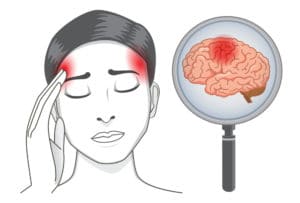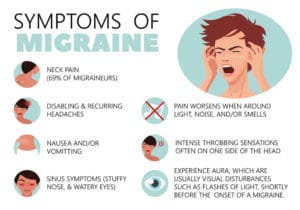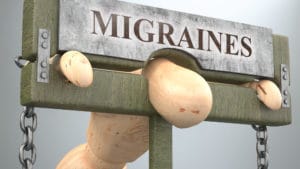The state of Missouri has listed migraines as a qualifying condition for medical marijuana treatment. California, Connecticut, and New Jersey also make allowances for headaches and migraines. However, Missouri indicates a more specific type of migraine than these states.
Patients with intractable migraines can qualify for medical marijuana, especially if their condition is unresponsive to other treatments. To do this, you must obtain a recommendation from a state-licensed physician.
You need to apply for a medical marijuana card in order to buy mmj from licensed dispensaries.
Visit our Missouri page and learn how to gain access to one.

Intractable migraines, also known as status migraines or status migrainosus, are severe types of migraines.
While a regular migraine can last between four to 72 hours, intractable migraines continue for more than 72 hours.
Status migrainosus affects less than one percent of migraine sufferers and is usually resistant to conventional drugs and treatments.
Intractable migraine episodes can cause persistent pain that interferes with a person’s daily life.
This type of migraine has long-term psychological, social, and financial impacts. For instance, migraine sufferers often experience anxiety and depression whenever an episode occurs.
Emotional, environmental, and lifestyle factors can lead to a migraine episode. It helps to identify and keep track of one’s triggers, so you can find ways to reduce exposure to them.
Like other types of migraines, intractable migraines are triggered when there is an upset or imbalance in the brain activity. Some of the common triggers include the following:

People with intractable migraines may experience the same symptoms as regular migraine episodes. However, these symptoms last longer and may be more intense.
While symptoms can vary depending on the individual and migraine episode, they often appear in these phases:
This phase is characterized by nausea, mood changes, trouble concentrating, food cravings, sensitivity to light and sounds, difficulty sleeping, and other issues. A person may experience these symptoms for a few hours lasting up to several days.
During this phase, a person may experience visual disturbances or other types of aura. Light or unusual formations may form in their field of vision.
An individual may also experience numbness or tingling on one side of their body. These symptoms may last from five minutes to an hour.
The main features of intractable migraines are intense and throbbing headaches. An individual may feel pain on one side of their head that may also spread to the other. For some people, the pain can be so debilitating that they need hospital treatment.
A person with intractable migraines may also experience the following:
Intractable migraines usually do not respond well to most migraine treatments. Although no treatment can entirely cure this migraine, medications can shorten the duration of its symptoms.
Standard treatment options include nonsteroidal anti-inflammatory drugs (NSAIDs), ergots, or triptans. They can help relieve pain, nausea, and other migraine-related symptoms.
If the pain does not improve or dehydration occurs, hospital treatment may be necessary. You might receive the following migraine treatments under the doctor’s supervision:
There are several ways to prevent intractable migraines. A doctor may recommend preventive medications to reduce the frequency or severity of migraine episodes.
Treatment options include:
Another way to prevent intractable migraines is to avoid triggers that may set them off.
If you wish to resort to medical marijuana to help manage your migraines, sign up for a medical marijuana card through our online platform.
